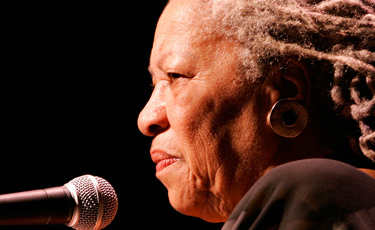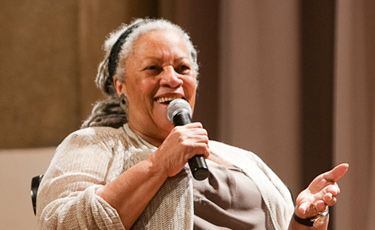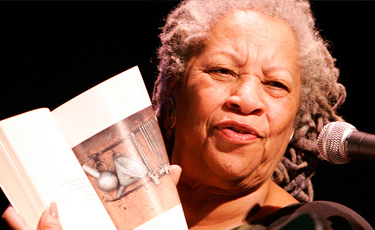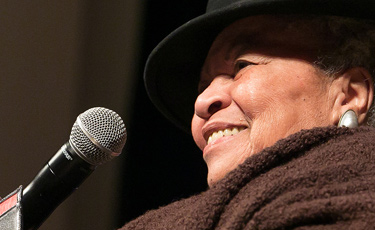THIRTY YEARS OF TONI MORRISON
“How bleak, unlivable, insufferable existence becomes when we are deprived of artwork. That the life and work of writers facing peril mustbe protected is urgent, but along with that urgency we should remind ourselves that their absence, the choking off of a writer’s work, its cruel amputation, is of equal peril to us.” – Toni Morrison
Upon conferring the 2016 PEN/Saul Bellow Award for Achievement in American Fiction on Toni Morrison, judge Louise Erdrich wrote “Revelatory, intelligent, and bold, [Morrison’s] fiction is invested in the black experience, in black lives, and in black consciousness, material from which she has forged a singular American aesthetic. Toni Morrison not only opened doors to others when she began to publish, she has also stayed grounded in the issues of her time. At every turn, she has commented upon and enlarged the conversation about what it is to be black, female, human, and universal. Her brilliant and bracing fiction continues to address what is crucial, timely, and timeless.”
Toni Morrison’s involvement with PEN America over 30-plus years has steadily challenged restrictive thinking about creation, consumption, and criticism of literature. Through her vocal and consistent articulation of opposition to all forms of oppression, discrimination, and censorship around the world, Morrison reminds us that we must remain steadfast in our protection of the written word and the power that literature has to inspire and transform.
1982: An Evening of Forbidden Books
1986: Forbidden Writing 1988: Imprisoned Writers, Free Voices
Toni Morrison reads work from Wole Soyinka, who was imprisoned for his sustained opposition to the military dictatorship in Nigeria in the 1960s. 1992: Writing in a Racialized Society
2008: Toni Morrison Accepts the PEN/Allen Foundation Literary Service Award
2011: PEN America Working Day
2016: Dangerous Work: An Evening with Toni Morrison
|











